I thought about whether it’s possible to counteract (i.e. offset) the effects of caffeine.
Many people enjoy caffeine, but dislike the fact that it causes insomnia and/or interferes with sleep quality/duration.
For this reason, many people want to know whether it’s possible to offset caffeine’s effect – and if it is possible, the most effective strategies for achieving this.
Why do you want to counteract the effect of caffeine?
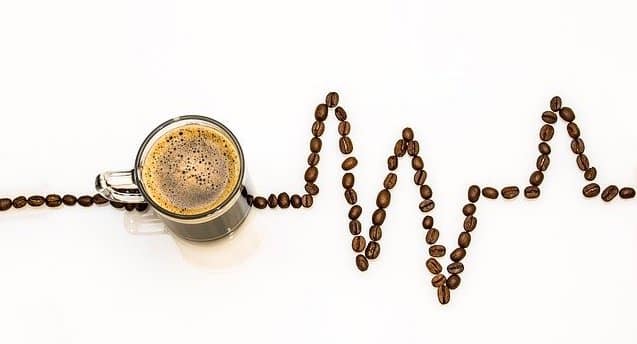
Most people are searching for ways to offset the effects of caffeine because they:
- Accidentally drank too much
- Ingested too high of a caffeine dose (possibly causing caffeine toxicity)
- Consumed caffeine late in the day (such that it’ll interfere with sleep quality/quantity)
First things to consider
Do I really need this much caffeine? (If you’re consistently drinking a lot of caffeine and experiencing negative health effects – consider either:
- Reducing the amount consumed (drink the “minimal effective amount” for whatever you’re trying to accomplish).
- Going without caffeine for a while (yes withdrawal can suck – but it may be worth a try).
- If this is becoming a regular thing – you may have a caffeine addiction and need to scale back.
It was a one-time thing… If it was just a “one-time” thing, chances are even if nothing works to “offset” it’s stimulating effect – you’ll recover back to normal within a few days.
How does caffeine work? (Mechanisms of action)
To hypothesize how we can offset the effects of caffeine – we must first understand caffeine’s mechanism of action and downstream effects of that action.
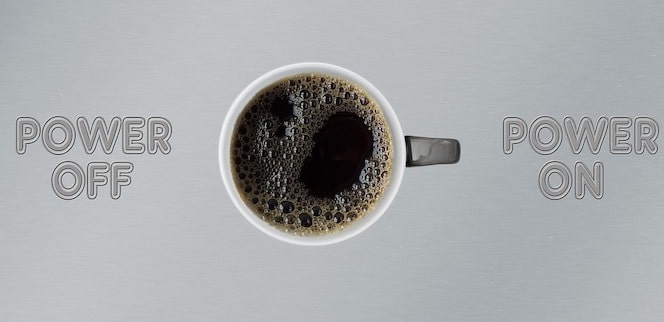
Adenosine receptor antagonist
It blocks adenosine receptors – preventing binding and agonism (i.e. activation) from endogenous adenosine (a neurotransmitter that causes fatigue/sleepiness).
More specifically, caffeine interacts primarily with the adenosine 2A receptors (A2A) – which generates a “wakefulness” effect.
It also interacts with A1; A2B; and A3 adenosine receptors as an antagonist.
Adenosine receptors are not limited to the CNS – they are present throughout the body.
Adenosine receptor antagonism stimulates release of catecholamines (epinephrine, norepinephrine, dopamine).
Catecholamines are associated with caffeine’s stimulatory effect.
Downstream effects of adenosine receptor antagonism include (but are not limited to):
Stimulatory neurotransmitters
Epinephrine, norepinephrine, dopamine, acetylcholine, glutamate, histamine – are all increased (in various regions of the brain) following caffeine administration. (R1, R2; R3)
Stress hormone production
Caffeine increases production of stress hormones (ACTH; cortisol; et al.) – likely as a consequence of stimulatory neurotransmitter production. (R)
Sympathetic nervous system activation
Or increased activation of the SNS branch of the autonomic nervous system (and simultaneous decrease in the parasympathetic branch).
Vascular effects
Inhibits phosphodiesterase enzymes, sensitizes calcium liberation channels, antagonizes GABA receptors. (R)
Decreased blood flow
Caffeine constricts blood vessels and decreases blood flow to the brain and various other regions of the body. (R)
Brain waves
Neuroelectrical activity a.k.a. brain waves change with caffeine administration.
Specifically, alpha waves and theta waves decrease and high-frequency beta waves (i.e. the Beta 2 band) increase. (R1, R2)
Metabolic effects
Temporary impairment in area under the curve (AUC) glucose response (for short-term drinkers).
(Improved glucose response is seen in long-term drinkers).
How to Offset the Effect of Caffeine (As Efficiently As Possible)
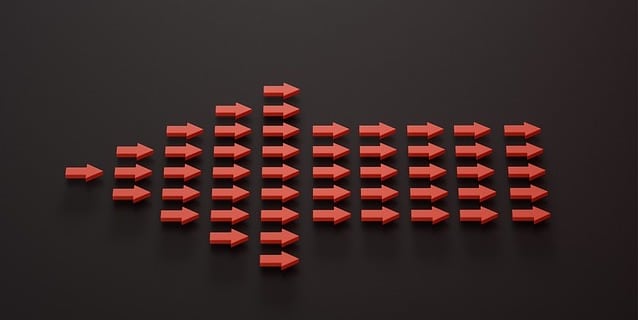
- Some of these strategies will be healthier/safer than others.
- I’d err on the side of trying the lowest-risk interventions before higher-risk interventions.
- Keep in mind that these are hypothesized neutralization strategies – mileage will vary depending on the specific person/scenario.
- Consult a medical doctor prior to trying any of these methods to confirm safety.
Drink water (hydrate)
Ensuring that you’re adequately hydrated will help your body eliminate caffeine and its metabolites as efficiently as possible via the kidneys.
(Don’t go overboard – but consider drinking a bit of extra water).
Exercise
Adenosine increases during exercise as ATP is utilized for energy. The increase in adenosine from exercise may be what causes people to feel tired or sleepy after their workouts.
Assuming it’s not too late in the evening – and you drank too much caffeine in the morning or early afternoon – get some damn exercise (this should help).
Note: As a note of caution – if you consumed a “toxic” amount of caffeine, do NOT do anything that dramatically spikes your heart rate (e.g. HIIT) as this could trigger a cardiac event.
Activated charcoal (Limiting caffeine absorption)
Assuming: (1) caffeine consumption was recent AND (2) you have activated charcoal supplements around – taking activated charcoal can help eliminate some caffeine from the body before it elicits a psychoactive effect.
Activated charcoal works via adsorption – wherein it binds to caffeine molecules (via its negative electrical charge) in the gastrointestinal tract and prevents caffeine absorption.
This can prevent caffeine (and possibly various caffeine metabolites) from eliciting further effects if you consumed an excessive amount.
If you administer activated charcoal “too long” after the caffeine was administered – it’ll probably have little-to-no effect, but may still be worth a try.
Note: This is technically not “offsetting” caffeine’s effect – rather is interfering with caffeine absorption. Nonetheless, could be useful if accidentally administered too much and immediately realize it.
Liver & kidney support
There are various supplements that can be administered enhance liver and kidney function.
- Milk thistle (Silymarin)
- Calcium-D-Glucarate
- NAC (N-acetyl cysteine)
That said, if your liver and kidneys are already healthy (i.e. aren’t functioning suboptimally) – it may not make much sense to do this.
Furthermore, some of these supplements may necessitate days or weeks of administration before beneficial effects within the liver and kidney are observed.
Therefore, if you buy supplements to optimize liver/kidney function – beware that they may not have an immediate effect.
Eat enough food
Do not under-eat while using caffeine. Why? Your body will probably have a tougher time relaxing if it’s hungry.
Hunger can increase production of stress hormones (e.g. cortisol) which will be synergistic with caffeine in keeping you “wired.”
You’ll wake up with hunger pangs in the middle of the night as a result of stress hormone spikes (due to insufficient calorie consumption).
Aim to eat balanced meals throughout the day – and adequate calories at dinner.
Note: I’m NOT suggesting that you overeat or eat late at night – as both of these can interfere with sleep.
Instead, you’ll want to focus on eating until you’re full – maybe eat a bit more than usual, as high glucose followed by a crash might make you tired.
Anxiolytic supplements, drugs, medications (Late Afternoon or Early Evening)
Broad-spectrum attenuation of caffeine’s stimulatory action in the CNS and peripheral with anti-anxiety supplements could be beneficial.
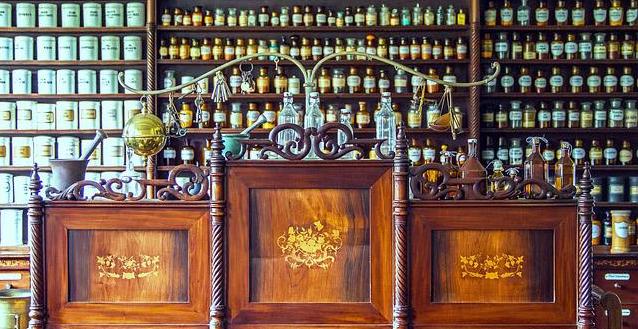
Supplements for anxiety
Various supplements may help offset the effect of caffeine if administered at an appropriate time.
Understand that supplements may have dose-dependent and individual-specific effects – such that one person may find a specific supplement helpful but another person may not.
Note: Confirm safety with a medical doctor and/or pharmacist before using any supplements.
- Magnesium threonate
- Magnesium glycinate
- Passionflower
- Ashwagandha
- Lavender (Silexan)
- Valerian root
- Kava
- B-vitamins
- Taurine
- Theanine
- Chamomile
- Relora
- Glycine
- GABA
- Rose hips
- Hops
- Lithium orotate
- 5-HTP
Medications for anxiety
- Beta blockers
- Nonbenzodiazepines
- Benzodiazepines
- Antihistamines
- GABAergics
- Anticholinergics
- Antidepressants
- Antipsychotics
- Alpha-adrenergic antagonists
- Gabapentinoids
- Cannabinoids
Note: I recommend using the fewest and lowest effective dosages of any medications/supplements to achieve the desired effect. I do not endorse any of these without medical doctor guidance.
Increase cerebral blood flow
Caffeine is understood to decrease cerebral blood flow via vasoconstriction.
It’s possible that counteracting its vasoconstriction may offset some of caffeine’s effects.
Exercise: Already recommended. Moderate intensity exercise increases blood flow to the brain.
Inversion therapy: Hanging upside down (such as on an inversion table).
Nitrate-rich foods: (Examples: Beets, leafy greens, celery, carrots). Dietary nitrates are converted into nitric oxide within the body. These increase brain blood flow.
Supplements for cerebral blood flow
Some of these supplements may be mentally-activating and thus could exacerbate the effect of caffeine in certain cases.
Note: Never use any supplement without confirming safety with a medical doctor and/or pharmacist.
- Beetroot powder
- Ginkgo biloba
- Vinpocetine
- Ibudilast
- Carnitine
- Resveratrol
- Ginseng
- NAC
- Bacopa monierri
- Citrulline
Relaxation exercises
The goal of relaxation is multi-fold: (1) increase parasympathetic activation (while decreasing sympathetic activation); (2) upregulate production of inhibitory neurotransmitters and hormones; (3) modulate brain activity (blood flow, brain waves, regional activation).
- Biofeedback (HRV training, neurofeedback to increase alpha/theta)
- Breath work (Paced breathing, Diaphragmic breathing)
- Isochronic tones (Goal: Increase alpha and theta waves)
- Guided imagery
- Meditation (Mindfulness, TM, etc.)
- Progressive relaxation
- Hypnosis (or Self-hypnosis)
- Sauna (infrared is ideal)
- Warm bath or shower
Pick one or more of these interventions and force yourself to actually do it. I’d recommend in the evening and/or before bed.
Additionally, I’d recommend engaging in the relaxation methods following anxiolytic supplementation for an augmented effect.
Why? It may be difficult or impossible to relax without first modifying neurochemistry via supplementation.
Sleep preparation
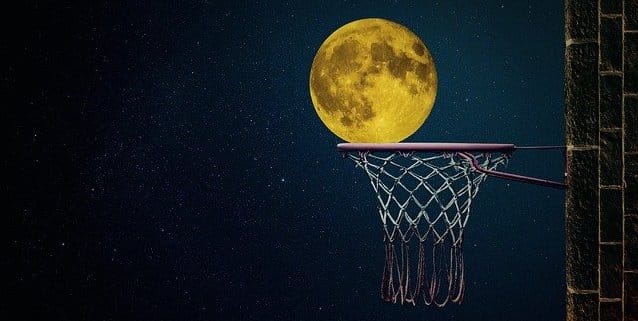
- Block blue light. Blue light may be synergistic with caffeine in maintaining wakefulness. Block all blue light before bed.
- Do NOT work late in evening: Working late may keep your caffeinated brain thinking and problem solving. You need to decrease the thinking/problem solving and chill out.
- Avoid electronics before bed: TV, cell phone, computer, tablets – should all be off at least 2-4 hours before bed.
- Sex with partner: Will help increase concentrations of various hormones (e.g. oxytocin) that should enhance your sleep.
- Colder-than-average room temperature (1-5 degrees colder): Caffeine raises core body temperature and impairs thermoregulation. To counter this, you’ll want a colder room.
- Warm shower before bed: Counterintuitively helps the body “cool down” for sleep.
- Sleep supplements: (Examples: melatonin, magnesium threonate, theanine, passionflower, glycine, magnesium glycinate, magnesium citrate, taurine, lavender, B-vitamins, 5-HTP, lithium orotate, etc.)
- OTC sleep aids: Diphenhydramine and doxylamine are decent one-time options but are very potent – so proceed with caution. (Memory loss and cognitive impairment may follow).
- Sleep meds: Require a prescription. (Examples: Nonbenzodiazepines (Z-drugs), orexin antagonists, benzodiazepines, various antidepressants, various antipsychotics, gabapentinoids).
Are there any other “hacks” to counteract caffeine?
Below are additional hacks that might help offset caffeine.
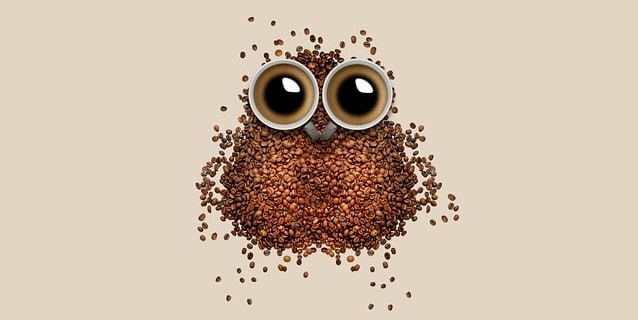
These are all theoretical and might actually worsen things in some cases – so don’t assume they’ll work.
Creatine monohydrate
Acts as an adenosine 2A receptor agonist in mice. (This is the opposite of caffeine).
That said, it is unclear as to whether it functions this way in humans.
If so, it would be worth administering to counteract caffeine. (R)
Creatine may augment the effect of caffeine for some people – so proceed with caution here.
If creatine does help, one must consider that it may require weeks of regular administration to fully saturate/modulate neurochemistry – so may not provide a “quick fix.”
Reduce ADA (adenosine deaminase)
Adenosine deaminase (ADA) converts adenosine to inosine. Inosine acts as a competitive inhibitor to adenosine.
Lower ADA = increased adenosine and lower inosine.
(Understand that the magnitude of adenosine increasing via reduced ADA with various supplements may depend on the specific supplement and its respective dose).
Substances that may reduce ADA:
- Berberine
- Curcumin: This substance also inhibits CYP1A2 – so while it may reduce ADA, it may also impair caffeine metabolism.
- Stinging nettle (R)
- Naringenin: Bioactive compound found in citrus fruits (e.g. grapefruit juice). (Perhaps “naringin” would also work?) (R)
- Valproic acid: A psychiatric medication. Probably not recommended for the sake of drinking too much caffeine. (R)
- Propranolol: A beta blocker known to decrease peripheral manifestations of an overactive sympathetic nervous system.
- Cordyceps mushroom: Cordycepin, a bioactive compound from cordyceps mushroom is chemically similar to adenosine. It is broken down by ADA and may exert adenosine-like effects within the body. (R)
Enhance caffeine metabolism (CYP1A2 inducers)
Caffeine is predominantly metabolized via the CYP1A2 enzyme in the liver – prior to excretion via the kidneys. (Caffeine “induces” CYP1A2).
If you had too much caffeine, you may be able to enhance metabolism of caffeine (the parent substance) and its metabolites via administration of CYP1A2 inducers or consumption of foods that ramp up CYP1A2 activity.
That said, it may take an extended period (e.g. regular CYP1A2 induction) for there to be a noticeable change in CYP1A2 expression.
Therefore, I’m skeptical of the idea that CYP1A2 inducers would have a quick-acting effect (though they may be worth a try in some cases).
If your goal is to offset or reduce caffeine’s effect over a long-term – then adding CYP1A2 inducers to your daily diet may be of some benefit (such that they increase CYP1A2 activity to metabolize caffeine more efficiently).
Cruciferous vegetables (Broccoli, Cabbage, Brussels Sprouts, Cauliflower)
Ramping up intake of cruciferous veggies (minus kale which seems to increase CYP1A2) should theoretically enhance metabolism speed/efficiency of caffeine (to some extent) via CYP1A2 enzymes in the liver.
CYP1A2 inducers
Select medications, drugs, and dietary supplements increase CYP1A2 activation and thus should speed up caffeine metabolism.
That said, the magnitude of effects will vary by substance and dose.
Additionally, you’ll want to be careful and ensure that you’re not taking something that potentiates caffeine’s stimulatory effects in the CNS.
I personally would NOT take most of these without a medical need and would NOT exceed recommended dosages.
- Omeprazole (Humans)
- Chinese skullcap (Baicalin) (Humans)
- Milk thistle (Silymarin) (Humans)
- Alcohol (Mice)
- Choline (Mice)
- Vitamin C (Mice)
- Amitriptyline (Humans)
- Dietary fats (Mice)
- Prazosin (Mice)
Which are lowest risk options? (My thoughts)
- Vitamin C
- Milk thistle
- Scullcap
- Dietary fats
- Omeprazole
I wouldn’t mess around with amitriptyline (a tricyclic antidepressant) or any cholinergics (because this may ramp up acetylcholine – not something you want if you drank too much caffeine).
Though alcohol does increase expression of CYP1A2 and counteracts the stimulatory effects of caffeine – it’s generally not considered healthy for sleep patterns.
Nonetheless, perhaps a glass or two of red wine might be reasonable.
Avoid CYP1A2 inhibitors
In some cases, it may be beneficial to regularly avoid certain supplements and/or foods that inhibit CYP1A2 enzymes in the liver.
Why? Inhibition of CYP1A2 will probably slow caffeine metabolism and increase its effect.
While intermittent intake of these foods probably won’t have much of an effect – daily consumption of large quantities will probably inhibit CYP1A2 to some extent.
Foods to avoid (CYP1A2 inhibitors)
- Curcumin & turmeric
- Caffeic acid (Thyme, Sage, Peppermint, Spearment, Ceylon Cinnamon, Star Anise, Sunflower seeds, Black Chokeberry)
- Apiaceous vegetables (Carrots, Parsnips, Celery, Parsley)
- Kale (other cruciferous veggies are okay)
- Grapefruit juice (and naringenin)
- Echinacea
- Propolis
- Quercetin
Alcohol (not recommended)
I do NOT endorse drinking an excessive amount of alcohol to counteract the effects of caffeine.
That said, small amount of alcohol (e.g. 1-2 glasses of red wine) may prove helpful in unwinding after feeling “wired” from caffeine.
Alcohol is known to modulate GABAergic neurotransmission – which (for most people) generates an inhibitory effect within the CNS that might help counteract the excitatory effect of caffeine. (R)
Alcohol is also understood to increase extracellular adenosine levels by: (1) inhibiting adenosine uptake into neurons and (2) increasing adenosine production within the body as a result of alcohol metabolism in the liver. (R)
You should know that alcohol negatively affects sleep architecture – but then again so does caffeine.
So although alcohol isn’t ideal for sleep – failure to counteract high-dose caffeine (such as by doing nothing) may be even worse than having some alcohol.
I wouldn’t make a habit of overconsuming caffeine and counteracting it with alcohol – as this could become a “vicious circle.”
Lastly, there are healthier supplements and methods you should try before drinking alcohol (to neutralize caffeine).
Smoking cigarettes (not recommended)
I do NOT endorse cigarette smoking (ever) because it’s inherently unhealthy – particularly over a long-term.
However, if you’re a regular smoker (and don’t plan on stopping), and recently drank too much caffeine – in theory you could increase the number of cigarettes smoked to expedite caffeine elimination from your body.
Hepatic aryl hydrocarbon hydroxylase (AHH) activity increases in smokers – likely promoting quicker caffeine elimination (in about half the time – on average). (R)
What about Rutaecarpine? (The “Anti-Caffeine Drug”)
In rats, administration of the alkaloid Rutaecarpine (from Evodia rutaecarpa) causes rapid metabolism of caffeine (and theophylline, theobromine, paraxanthine) via induction of CYP1A2 and CYP2E1 enzymes.
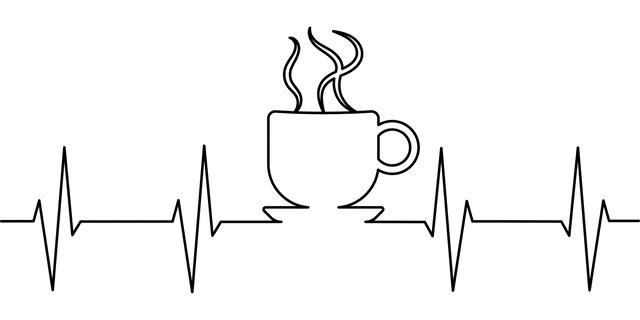
3 consecutive days of Rutaecarpine speeds caffeine elimination rate by ~3-fold in animal models.
Based on this “rat” research, many marketers have touted Rutaecarpine as an “anti-caffeine” agent that will help get caffeine out of your system or neutralize the effect of caffeine if you happened to drink too much.
There are a few problems with blindly assuming Rutaecarpine works well to speed up caffeine metabolism and elimination in humans:
Dosage
It is unclear as to whether the respective Rutaecarpine dosages administered to rats (80 mg/kg/day) and mice (50 mg/kg/day) were properly converted for human dosing.
Most Rutaecarpine sold to and taken by humans in the form of anti-caffeine pills contain 100 mg per dose.
Here is a guide for converting doses between animals and humans (I’m not going to do the calculation). (R)
Timing
Rutaecarpine was administered 3 consecutive days (in animal studies) before researchers measured its effect on caffeine metabolism.
It’s certainly possible that just a single dose induces CYP1A2 to some extent – and repeated doses to a more significant extent.
That said, you might need to administer it for several days for sufficient CYP1A2 induction to noticeably neutralize caffeine.
Humans vs. Animals
Different effects?
Though humans have much in common with rats (hence their use as test subjects for novel drugs), many substances do not function the same way in rats as humans.
Pharmacodynamics, pharmacokinetics, and toxicities can vary between rats and humans.
- Rats: In rats, Rutaecarpine seems to induce CYP1A2 after 3 consecutive days of administration. (R)
- Mice: In mice, Rutaecarpine is a CYP1A inducer and shows potent inductive effects of CYP1A1 and CYP1A2. (R)
- Humans (?): A study using human liver microsomes & recombinant human P450 found that Rutaecarpine was metabolized primarily by CYP1A2. However, its main metabolite (10-hydroxyrutaecarpine) inhibited CYP1A2. (R)
Many believe that humans metabolize Rutaecarpine similarly to rats/mice via CYP1A2.
Though the 10-hydroxyrutaecarpine metabolite may inhibit CYP1A2, chronic administration of Rutaecarpine is thought to significantly induce CYP1A2 in humans. (R)
Safety
It’s unknown as to whether Rutaecarpine is safe in humans (particularly at the dosages administered with intent to expedite caffeine metabolism).
There are currently ZERO human studies involving Rutaecarpine. (R)
Some users of Rutaecarpine may fail to realize that inducing CYP1A2 could affect the metabolism of other medications that they use (e.g. asthma meds).
Would I use Rutaecarpine to speed up caffeine elimination?
No. Why? There are zero human studies vouching for its safety or even confirming its hepatic mechanism (CYP1A2 induction).
It also acts as a COX-2 inhibitor (lowering inflammation) and immunomodulator – neither of which I need.
Moreover, Rutaecarpine might affect metabolism of other supplements and/or medications that interact with CYP1A enzymes and cause unwanted side effects (e.g. tinnitus).
For those with a high risk tolerance? Regular administration of Rutaecarpine can reduce the exposure of caffeine to the body.
So essentially, if you regularly “drink too much” caffeine – then this may be a useful supplement.
That said, for those who want to “offset caffeine” on a single occasion (e.g. the one time per month or two that you drank too much caffeine) – a single dose of Rutaecarpine probably won’t be of massive benefit (although you could give it a try as a self-experiment).
What would Drew do to counteract caffeine’s effect?
This is assuming I consumed an excessive amount of caffeine on a one-time basis – such that I’m concerned with potential disruption of sleep and circadian rhythm.

(This does not assume I consumed a toxic amount of caffeine (such as to induce caffeine toxicity – which may require medical attention).
Note: The tips below are in no particular order (e.g. hypothesized importance or magnitude of effect).
Consider activated charcoal
If I had one cup too many and realized it immediately after – I’d pop some activated charcoal (this will bind to the caffeine and blunt further pharmacodynamic action).
Do not take this with other supplements as it will negate most or all of their effects.
Additionally, I would not make it a regular habit to take activated charcoal – as it may interfere with nutrient absorption and increase risk of certain bacterial infections.
Hydrate
Drink adequate water (or a bit more than usual) to stay hydrated and support caffeine clearance via kidneys.
(Don’t go crazy though – or you’ll cause an electrolyte imbalance and be peeing way too much… your pee doesn’t need to be clear).
Exercise
Assuming it’s not already evening/night – I’d do 15-60 minutes of steady state cardio (moderate intensity) and resistance exercises (squats, pullups, pushups, sit-ups, etc.).
If you already exercised, great – go for an extra walk.
Ultra-high intensity exercise is not recommended due to potential cardiac events via synergism with caffeine (particularly if a high-dose was ingested).
Beets or beet juice
To counteract the vasoconstriction of caffeine and increase cerebral/peripheral blood flow.
(Might also use beet powder or try L-arginine supplements).
Cruciferous vegetables
Big plate of broccoli, cauliflower, etc. These should help induce CYP1A2 to improve caffeine metabolism.
Block blue light (after sunset)
Blue blocking sunglasses and phone to “amber red” mode.
Turn off excessive lighting in the house after sunset… any wavelength light can be disruptive to the circadian rhythm.
Relax in the evening
I’d try to do anything relaxing. Stretching, sauna, hot shower or bath, meditation, progressive relaxation, paced breathing, etc.
(Recommended for 10-30 minutes to clear head and reduce sympathetic tone).
Cold room (for sleep)
My optimal room temperature for sleep with caffeine in winter is 57-59F (yours may be different).
That said, in summer 60-66F seems to work to some extent.
If my room is 68F or higher – no way will I be able to sleep (caffeine will have me sweating, tossing/turning, etc.) – will be a complete trainwreck.
Cold house
I like to cool down the house 2-4 hours before sleep.
I’m not sure to what extent this helps – but I think it may help lower my core body temperature to enhance sleep (before I’m actually sleeping).
Eight Sleep Pod (Cold)
This is a device that I use to actively cool my bed.
Works extremely well and can sometimes prove useful for thermoregulation while under the influence of excessive caffeine (which causes my body to heat up at night).
(I don’t use this if my room is 57-59F).
Slightly overeat (3-5 hours before bed)
Why? Undereating will increase stress hormones and interfere with sleep.
Overeating and/or eating close to your bedtime isn’t recommended either because it’ll further elevate my core body temperature.
Overeating (especially by a lot or late at night) + too much caffeine = sleeping hot/night sweats.
That said, I’d lean towards slightly overeating than undereating (because overeating usually triggers a sedating “postprandial” energy dip).
Relaxation & sleep stack
I’d hit myself with a “double whammy” of a dinner-time or post-dinner anxiolytic stack – followed by a sleep stack 30-120 minutes before bed.
- Anxiolytic stack (dinnertime): Magnesium glycinate (400 mg); Magnesium threonate (144 mg); Lithium orotate (120 mg); Relora (optional).
- Sleep stack (before bed): Magnesium glycinate (400-800 mg); Magnesium threonate (144 mg); Melatonin (5-10 mg); Taurine (1000 mg).
- Sleep bonuses (optional): Valerian root (500-1000 mg); Glycine (1-3g); B-complex or L-methylfolate; GABA w/ vitamin B6; Lavender (Lavela WS 1265).
- Middle night wake-up: Magnesium threonate; Diphenhydramine; Valerian. (If wake up in middle of the night).
- Miscellaneous supplements: Vitamin C (1-2g); NAC (1-2g); Vitamin D3/K2 (normal dose); Milk thistle. (Vitamin C and NAC best taken on empty stomach).
No electronics (after sunset)
Avoid all electronics (TV, tablet, computer, etc.) 2-4 hours before bed.
Why? Blue light from screens will reduce melatonin production and disrupt the circadian rhythm just like caffeine.
“To Do” list & thought/idea purge
Before bed write up a “To Do” list for tomorrow – and purge any other thoughts/ideas circulating through my head (preferably in a notebook).
(This may be beneficial if you’re somewhat OCD like me).
My caffeinated brain keeps coming up with new ideas that it wants me to remember).
This should help prevent my brain from worrying about forgetting something when I lay down for sleep).
What else could you try to offset or neutralize caffeine?
Creatine monohydrate
Acts as an adenosine 2A receptor agonist in mice. (This is the opposite of caffeine).
That said, it is unclear as to whether it functions this way in humans. If so, it would be worth administering to counteract caffeine. (R)
General sedatives
The goal here is to decrease activation of the sympathetic nervous system, stimulatory/excitatory neurotransmission, and stress hormone production.
(Be cautious about combining multiple sedatives – talk to a doctor/pharmacist to ensure safety given the dosing and your personal health situation).
Supplements to counteract caffeine (Semi-Complete List)
Never take any supplement or supplement combination (i.e. stack) without first confirming its safety with a medical doctor and/or pharmacist.
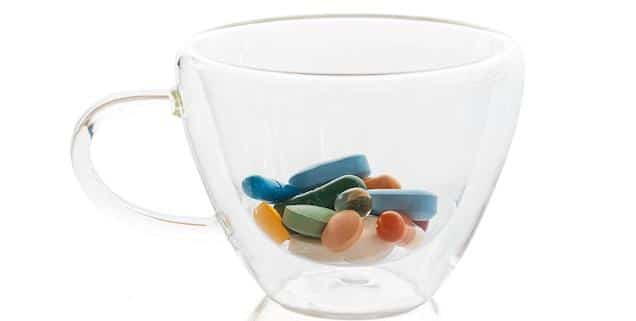
Also don’t randomly combine these supplements without checking for interactions – as this could be harmful. Caution is recommended.
Note: The links are affiliate links – meaning I earn a small amount if you buy through me. Cost is the exact same regardless.
- Magnesium threonate or magnesium glycinate or magnesium citrate: Not going to list the dosages I take – but it’s a lot. (Usually 400-1200 mg magnesium citrate, 300-400 mg magnesium threonate, etc.). Citrate may cause digestive issues for some – avoid if this happens to you.
- Melatonin IR or Melatonin XR: 5-10 mg. Caffeine decreases melatonin production at night. This is probably offset (to some extent) by exogenous melatonin administration.
- High-dose melatonin: If lower doses of 5-10 mg don’t cut it – you could trial higher doses like 20-40 mg. I’ve personally found that 20-40 mg melatonin are more effective for sleep maintenance because of the cortisol suppression effect (which is not really significant with lower doses).
- Passionflower: May help counteract caffeine-induced stimulation via its anxiolytic effect.
- Hops extract: Commonly used for anxiety, insomnia, and sleep issues – so might help offset caffeine.
- Chamomile extract: You could make chamomile tea in the evening to help relax after drinking too much coffee – or take a chamomile extract.
- Apigenin: A bioflavonoid compound (flavone) abundant within chamomile tea. (High doses may lower anxiety, cause sedation, and muscle relaxation).
- B-vitamins: Taking vitamin B-complex can cause tiredness and lower anxiety for some. You could also experiment with specific B-vitamins (e.g. B6, B9, B12). (Be careful though – some find B-vitamins to be stimulating).
- Taurine: Increases blood flow – may help with physical/mental relaxation. (I use 1000-2000 mg).
- L-Theanine: Some find theanine supplements (100-200 mg) useful for decreasing thought speed and winding down after caffeine.
- Lithium orotate: A form of lithium that can be purchased online. May help neutralize some of caffeine’s stimulatory effects.
- Chinese scullcap: Increases CYP1A2 expression when taken regularly to speed up caffeine metabolism.
- Glycine: Taking 3 grams (i.e. 3000 mg) of glycine may help improve sleep quality after caffeine intake.
- GABA with vitamin B6: Unclear as to whether GABA from supplements penetrates the brain, but there’s a chance – worth trying.
- Phosphatidylserine: Thought to lower cortisol.
- 5-HTP: Precursor to serotonin. Take before bed and ensure L-Tyrosine next morning to balance amino acids.
- Lavender (Silexan): May help enhance sleep after drinking excessive caffeine.
- Valerian root: Herb with mild GABAergic effects that may help some “turn off their brains” before sleep.
- Kava: Be careful here. May cause liver damage in some cases. Usually doesn’t – but proceed with caution. Avoid extracts.
- L-Methylfolate (Vitamin B9): Seems to help increase sedation but I do NOT take regularly.
- Ashwagandha: Understood to decrease stress hormones and excitatory neurotransmission.
- Relora: A supplement that combines Magnolia officionalis and Phellodendron amurense – and is thought to lower cortisol, a stress hormone that increases from caffeine.
- Lemon balm: Associated with an anxiolytic effect – may help relax when taken in the evening.
- Schisandra: May lower cortisol and increase nitric oxide – which could help with sleep. Schisandra has historically been used as a sedative/hypnotic for insomnia.
- Ginseng: Be cautious here – as it could be activating. I’ve tried Panax, Siberian, and American. For me, ginseng provides an odd combination of mental relaxation and mild stimulation (simultaneously).
- Ginkgo Biloba: Neurotransmitter modulator and blood flow enhancer.
- L-Arginine: May enhance blood flow to the brain/extremities – counteracting vasoconstriction associated with caffeine.
- Beet powder: May increase cerebral and peripheral blood flow to offset the blood vessel constriction of caffeine.
- Tart cherry: Listening to a podcast with Matthew Walker & Andrew Huberman – it was said that “tart cherry” and “kiwi” (fruit) might benefit some people in terms of sleep quality.
- Rhodiola rosea: This would be something to experiment with – and probably only take during the day. If you drank a lot of coffee in the morning/early afternoon – administering Rhodiola rosea right after might be helpful via its neuromodulation
Note #1: I do NOT take all of these supplements at once (nor would I ever recommend doing that) – some cancel each other out, others may have unfavorable interactions, etc. (If you want to see my relaxation stack and sleep stack – I’ll update this in the future).
Note #2: Many supplements that were not listed here may also help neutralize caffeine’s stimulating effects.
Medications to offset caffeine?
These are medications to which I’ve tested in the past on myself.
- Diphenhydramine (Benadryl): OTC sleep aid that functions as an antihistamine. (Read: Diphenhydramine for sleep).
- Doxylamine (Unisom): OTC sleep aid more potent than diphenhydramine. Do not recommend unless you’re really struggling.
- Clonidine: Medication for controlling blood pressure that also helps with anxiety. Needs to be dosed correctly – but can help counteract caffeine when used short-term.
- Alprazolam (Xanax): Wouldn’t recommend unless absolutely necessary. (Read: Alprazolam for sleep).
- Gabapentin: I no longer take due to the fact that it seemed to trigger a transient tinnitus. That said, I got probably the best sleep of any substance I’ve ever tried while using gabapentin for the first time.
Caffeine toxicity: emergency treatment
If you suspect you have caffeine toxicity – go to the emergency room, don’t mess around with stupid (or ill-informed) recommendations on the internet!

This is what medical doctors will do if you end up in the ER with caffeine toxicity. (R)
The primary treatment for minor (i.e. non-toxic) caffeine ingestion is supportive.
- Hydration: May be oral in minor cases – severe cases benefit from IV hydration.
- Beta-blockade: Esmolol is useful for tachycardia. (Other beta blockers may be efficacious as well).
- Antiarrhythmics: Procainamide, lidocaine, or bicarbonate: Utilized for the treatment of tachydysrhythmias.
- Vasopressors: Like vasopressin or phenylephrine can be used to maintain blood pressure (goal mean arterial pressure over 65 mm Hg) without worsening tachycardia.
- Activated charcoal: Can bind caffeine if ingestion is recent and repeated doses help diminish serum concentration via enterohepatic circulation.
- Hemodialysis: Effective in severe, life-threatening caffeine ingestions.
- Intra-lipid therapy: In cases of imminent cardiac arrest. This helps scavenge free serum caffeine.
Why do you want to counteract the effects of caffeine?
Ask yourself this question.
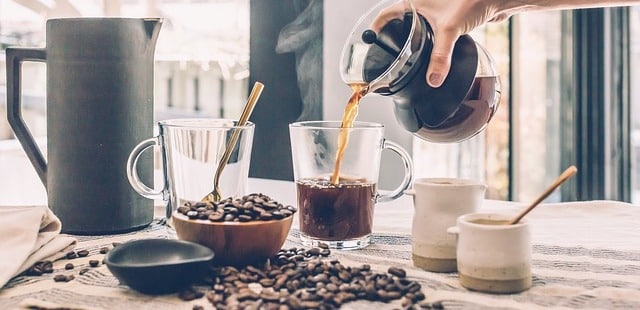
For most people, it was because they simply drank too much (enjoying the taste and effects of caffeine) and got carried away – such as while working on a project or studying.
Hopefully this is just a one-time or infrequent event in the grand scheme of your life.
However, if this occurs regularly – you may have a caffeine addiction and might want to abstain from caffeine until you get your consumption under control.
You could also switch to decaf beverages (or good tasting drinks) with lower caffeine content – this gives you the taste fix without the ridiculous caffeine spike.
What if you regularly drink too much caffeine?
If you regularly drink too much caffeine and it interferes with your sleep/circadian rhythm (such that you’ve searched for how to “offset” or “neutralize” its effect):
Reduce the amount consumed
The smartest intervention is to modify your caffeine habit by reducing the amount you consume.
Switch to decaf, dilute your beverages, try a lower caffeine drink like green tea – which also has theanine, or go zero caffeine.
Limit caffeine to mid-morning
Consume caffeine only in the morning (the earlier the better if you consume too much). Avoid caffeine boluses past 10 AM.
Assuming you consume 400 mg – it’ll take 5 hours for the amount in your system to drop by half (assuming you’re a normal metabolizer).
This means that if you drank a 400 mg energy drink at 7 AM – you’ll be down to ~200 mg at 12 PM (noon), ~100 mg at 5 PM, and will still have ~50 mg circulating in your brain at around 10 PM (not good).
If you drank that same 400 mg energy drink at 5 PM – you’ll have ~200 mg circulating in your system while trying to sleep at 10 PM. If you do manage to sleep – the quality will be horrible, but most likely you won’t be able to sleep.
CYP1A2 modulation
Those who regularly drink too much caffeine would probably benefit from CYP1A2 induction and less CYP1A2 inhibition.
Administration of CYP1A2 inducers and avoidance of CYP1A2 inhibitors may be beneficial over time for increasing efficiency of caffeine metabolism.
Consumption of foods that induce CYP1A2 and avoidance of foods that inhibit CYP1A2 may be beneficial to enhance caffeine metabolism (over time).
Intentional caffeine tolerance
Regularly drinking too much caffeine will trigger biochemical changes throughout the body (CNS, peripheral, liver) over time (as an adaptive response) wherein you build some degree of tolerance to the dosage you’ve been ingesting.
This means your body should begin to handle larger doses more efficiently (to some extent) as a result of things like upregulation of A2A receptors and perhaps CYP1A2 enzymes.
Therefore, it may just be a matter of time before “too much caffeine” has a less significant detrimental effect.
Supplement experimentation
Hopefully you’ll have experimented with anxiolytic/sedative supplements (with proper medical guidance) to find out which specific supplements or “stacks” (i.e. supplement combinations) work well for you in offsetting caffeine’s effects.
I’ve mentioned the supplements that work well for me and my 2-phase approach to lowering arousal in the evening and getting good sleep.
I like anxiolytics after dinner in the evening, and sedative/hypnotics before bed.
Lifestyle modifications
If you’re sedentary, lack good sleep hygiene, and/or you’re undereating or overeating by a significant amount – lifestyle changes could go a long way towards offsetting caffeine’s effects.
- Exercise (daily, moderate intensity)
- Sleep hygiene (cold room, no screens 2-4 hours before bed, eat 2-4 hours before bed)
What if the strategies you’ve implemented are reducing caffeine’s beneficial effects?
Adjust (i.e. titrate).
Example: You’re taking a supplement (e.g. Rutaecarpine) that has been working well to neutralize the effects of chronically overconsuming caffeine – but now caffeine isn’t working as well to enhance performance (as in the past).
In this case, you’d probably want to lower your Rutaecarpine dosage until you found a “happy medium” wherein you get caffeine’s benefits without the circadian and sleep disruption.
(Obviously the best strategy is to avoid Rutaecarpine and just lower your caffeine intake via decaf, etc. – but for those who are stubborn – keep tweaking/adjusting until you find what works).
Have you tried any methods to counteract caffeine’s effect(s)?
- If so, which interventions you find most helpful such that you were still able to get a good (or at least decent) night’s sleep?
- Feel free to share why you want to offset caffeine’s effects in the first place. (Usually this is due to drinking caffeine too late in the day, drinking too much caffeine regardless of time – or both).
- Do you know how efficiently you metabolize caffeine (based on CYP1A2 expression)? (e.g. Poor, Normal, Rapid)
- This may be useful with regard to: caffeine dosing and intake timing.
- Rapid metabolizers can probably “get away with” consuming: (1) more total caffeine per day and (2) caffeine later in the day – without as many adverse effects (as poor and even normal metabolizers).